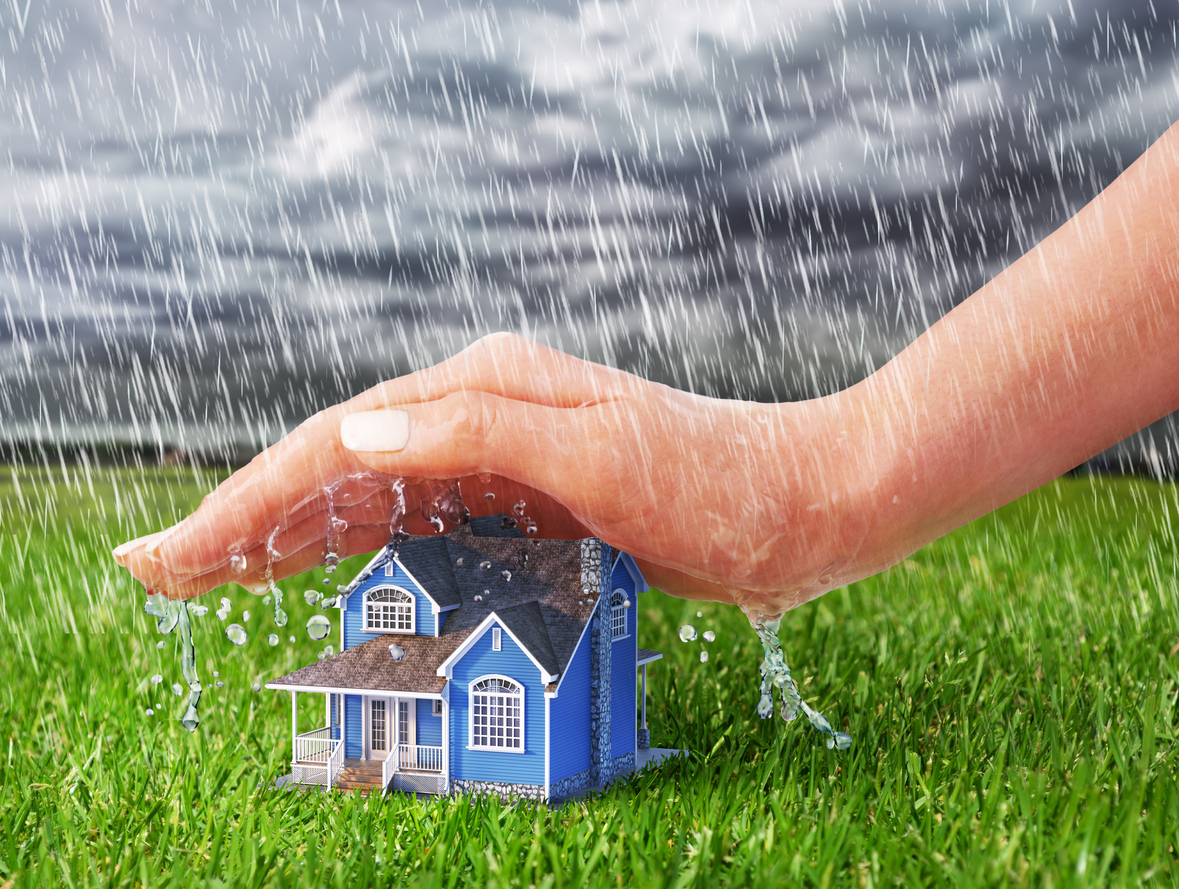4 Reasons Rain Is Your Friend When Buying a Home
When house hunting, most people envision touring properties on warm, sunny days. The allure of exploring great outdoor spaces, imagining lazy afternoons by the pool, and admiring meticulously landscaped gardens is undeniable. However, don’t underestimate the value of a rainy day. Rain can reveal hidden issues that might otherwise go unnoticed during dry periods. Here are four reasons why rain can be your ally when evaluating a potential home:
1. Unmasking Foundation and Basement Problems
Several days of rain (and wind) can expose potential issues that might be harder to detect during drier periods. Keep an eye out for telltale signs that indicate underlying problems:
- Improper Downspouts: Observe whether downspouts direct rainwater away from the foundation. If they dump water against the house, it could lead to foundation issues.
- Basement Odors and Efflorescence: Moldy odors or efflorescence on basement walls are red flags.
- Attic Water Stains: Check the underside of attic plywood for water staining or signs of mold.
Remember, even a steady downpour can work in your favor by revealing these issues.
2. Assessing Roof Condition
Rain provides a unique opportunity to evaluate the roof. Here’s why:
- Rainwater Load: Just one inch of rain can unload 1,000 gallons of water onto a roof. If the roof has only four downspouts, that’s 250 gallons per gutter. Ensuring proper drainage away from the house is crucial.
- Signs of Roof Damage: Look for missing shingles, curling shingles, moss buildup, or absent flashing. Multiple layers of shingles may also indicate a need for roof replacement.
- Quality of Installation: A newer roof doesn’t guarantee quality. Proper installation, including correct flashing around chimneys and vents, matters. Beware of roofs power-washed by inexperienced hands, as it can reduce their lifespan.
Don’t forget to inspect the attic. Look for leaks, water stains, wet insulation, and any signs of mold.
3. Gutters: Keeping Water Away
Gutters play a vital role in diverting rainwater away from the house. Here’s what to consider:
- Functioning Gutters: During heavy rain, gutters should efficiently channel water away from the roof, basements, and crawl spaces. Overflowing or leaking gutters need attention.
- Downspouts and Extenders: Ensure downspouts extend several feet away from the home. Regular cleaning prevents clogs from dirt and leaves.
- Roof Ventilation: Proper ventilation through vents and soffits is essential for roof health.
4. Evaluating Drainage and Runoff
Consider the home’s location concerning drainage:
- Flood Zones: If the property lies within a flood zone or near a water body prone to overflowing, proceed with caution.
- Sloping Ground: Observe how the ground slopes around the house. Proper grading ensures water flows away from the foundation.
In summary, rain isn’t just an inconvenience during home tours; it’s an invaluable tool for uncovering potential issues. Prioritize addressing structural concerns before indulging in cosmetic upgrades. Remember, a well-maintained exterior envelope keeps your home safe and dry, regardless of Pinterest-worthy kitchens or Instagram-worthy bathrooms.
Doug McNeilly is a REALTOR® with Coldwell Banker Realty in Wayland, Massachusetts. He specializes in Wayland, Sudbury, Natick, Framingham and the Greater Boston Metro West Area. He can be reached at doug.mcneilly@cbrealty.com or www.dougmcneilly.com


 Facebook
Facebook
 X
X
 Pinterest
Pinterest
 Copy Link
Copy Link

